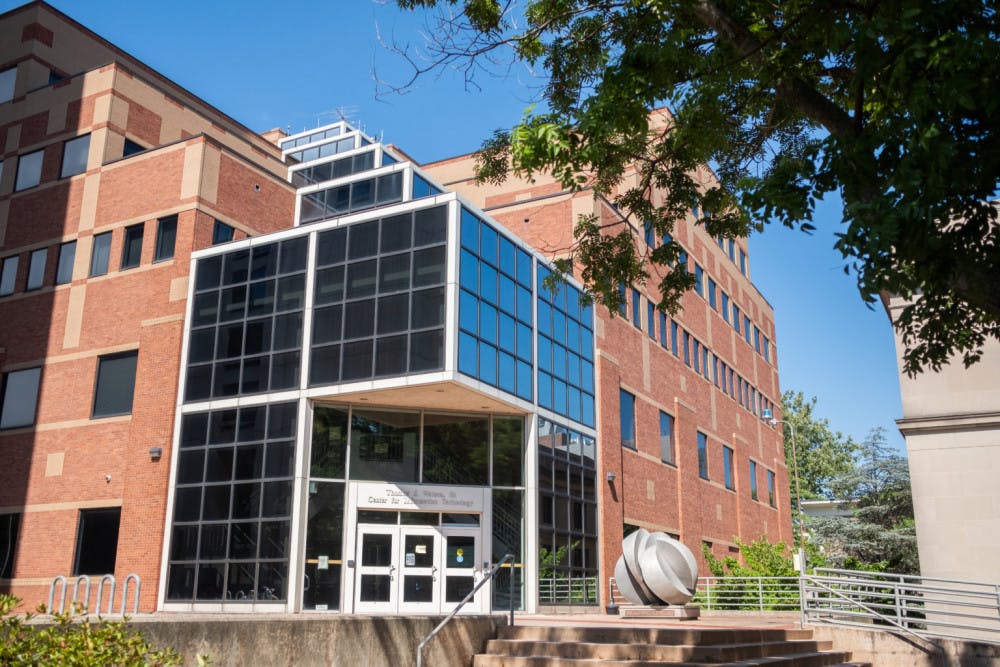The Undergraduate Council of Students passed a resolution to rename the Thomas J. Watson Sr. Center for Information Technology after its Nov. 18 general body meeting.
The resolution, which passed with 87.5 percent in favor, was sent to the Office of the President and the Advisory Committee on University Resources Management, a special body that makes recommendations to the President on ethical investments and expenditures.
ACURM can issue a recommendation regarding the resolution, but the ultimate decision to rename the CIT lies with the Corporation, the University’s highest governing body, according to UCS President Jason Carroll ’21.
Concerns surrounding Watson Sr.’s connections to Nazi Germany prompted the resolution, which was sponsored by Carroll and co-sponsored by Deborah Meirowitz ’22 and UCS Chair of Campus Life Zane Ruzicka ’23.
Watson Sr. “maintained deep business relationships with Nazi Germany” during his time as president of International Business Machines, a company whose German subsidiary leased machines that were “used to facilitate the Holocaust and operation of concentration camps,” according to the text of the resolution.
While the resolution is being considered by University officials, UCS members are “planning a strategy to make sure that students are informed” and that the matter is “given the attention and conversation that it deserves,” Carroll said.
“I hope (the resolution) sparks a larger discussion about antisemitism in the Brown community,” Meirowitz added. “There are (many) antisemitic incidences on college campuses around this country that people don’t know about, and I think it’s really important that we use this as a jumping off point.”
Combating “antisemitism is a critical part of combating white supremacy globally,” she said.
Despite the publication of the 2001 book IBM and the Holocaust and a 2004 Herald article about Watson Sr.’s past, Carroll said that “there didn't seem to be a huge conversation at Brown about our connection to Watson (Sr.).”
“Once students know about this … will students with lots of various ethnic, racial, religious (backgrounds) feel comfortable using that facility and honoring that person?” Carroll questioned. “The only reason (students) are ‘okay’ with it now is because nobody knows about any of this,” he said.
Although unfamiliar with the resolution, computer science students who spoke to the Herald were generally in support of a name change.
“If there are students that feel uncomfortable with the fact that the CIT’s named after someone associated with Nazi Germany,” renaming the center would be “a welcome change,” said Rahul Mani ’21, president of the Computer Science Departmental Undergraduate Group.
Floria Tsui ’23 said she is in support of the resolution. “Names hold a lot of power,” she said, adding that students “don't always question where that name comes from, and the funding behind that, and why that still persists.”
“On a basis of principle, it is probably a good thing to do,” Nick Young ’23 said. Although he expressed support for the name change, he noted that most students did not seem to know about the history of the CIT’s namesake and expressed doubt about that history’s discernible effects on student life.
Additionally, because the building is mostly referred to as the CIT, Young said he does not feel attached to the center’s full name.
But while some said they do not feel a strong connection to the current name, Professor of Computer Science Andy van Dam shared hesitations about what the name may be changed to. As someone whose family was affected by the Holocaust, van Dam “personally wouldn’t mind seeing a change to the Watson Sr. Center for Information Technology,” he said, while noting that he believes Thomas J. Watson Jr. and the “Watson clan” should still be honored at the CIT.
“Given the long history of Watson and IBM contributions to Brown, … I think it would be much better to preserve the (Watson) name,” van Dam said, suggesting that the CIT be renamed to the Watson Center for Information Technology instead of honoring Watson Sr. specifically.
The resolution is not targeting the Watson Institute for International and Public Affairs, which is named after Watson Sr.’s son, Thomas J. Watson Jr. ‘37, who was not involved with Nazi Germany.
Names indicate who “we as a society think deserves honoring,” Meirowitz said. “We shouldn't be honoring (Watson Sr.), someone who profited off of and assisted in the critical aspects of the organization of a genocide,” she continued. “It just doesn't represent our values as (Brown) students, faculty and staff.”
“It's also a question of what really has a bigger impact on this University,” Carroll added. “Is it money or is it ethics?”

Proposed alternatives to renaming the CIT include placing a plaque outside the CIT addressing the ethics of Thomas J. Watson Sr.’s past business practices.
Courtesy of Brown University
ADVERTISEMENT




